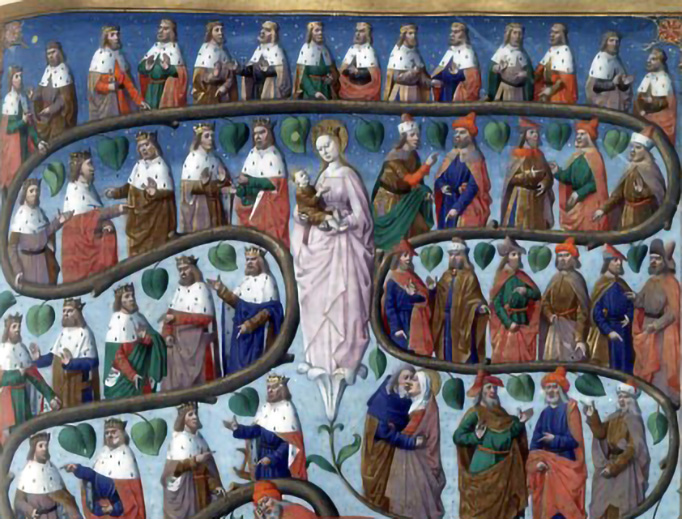The Genealogy of Jesus Reminds Us of God’s Love for Humanity
The genealogy of Jesus Christ reminds us of the gift of the Incarnation.

At the Christmas Vigil Mass, we take a journey through salvation history to recall once again the great gift that is the coming of Christ in the flesh.
Saint Matthew, in his attempts to demonstrate the Lord Jesus as the fulfillment of the hopes and dreams of the People of Israel, traces the genealogical roots through the recorded history of salvation, beginning with Abraham, our father in faith and ending with Joseph, the foster father of the Lord Jesus. Luke, in his version of the genealogy, offers a wider genealogy, embracing all of humankind, beginning with Adam at the dawn of creation, signifying the universal mission of salvation of the Christ of God.
If anything, going through this list, which each one being “the father of,” we recognize the saints and the sinners, the highlights and the lowlifes which make up every human family, something that makes this family just like our own. One thought for our reflection though: the proclamation of this genealogy should remind us of the Incarnation of Jesus Christ. God, immortal, invisible, the One only-wise, dwells no longer in Christ in light inaccessible, hid from our eyes. In the Divine condescension, God becomes man while still remaining God. The God of monotheism, “I am Who Am,” the mighty Lord becomes the tiny Prince of Peace in the mystery of the Incarnation. God allows himself to be bloodied, bruised, beaten, broken, taking on the form of a slave, to be rejected by the very creatures to whom his breath had given life for no other reason besides pure love.
God had already entered into human history with creation in Adam; he had already given the covenant with Abraham, Noah and Moses; now he allows himself to experience all that we do, as we do, in all things except for sin. This is the depth of God’s largess, the depth of his mad love for humanity. The genealogy reminds us of this fact — God enters into the messiness of human life, a sloppiness and a disorder that he knows well, having had created it in the first place, and he still chooses to save us. Joseph Cardinal Ratzinger reminds us in his classic text, The Spirit of the Liturgy:
All time is God’s time. When the eternal Word assumed human existence at his Incarnation, he also assumed temporality. He drew time into the sphere of eternity. Christ himself is the bridge between time and eternity.
In Christ, time and eternity kiss. The Incarnation of Christ is far more than a rescue mission — it is part of God’s divine plan, a mystery hidden from all ages, to occur at the fullness of time.
The Seraphic Doctor, Bonaventure the Franciscan Saint, tells us:
For it was by the Word’s becoming flesh that the salvation and redemption of humankind was achieved. This was not because God would not have saved and liberated the human race by some other means, but because no other way would have been so fitting or so appropriate to the Redeemer, those redeemed, and the nature of redemption.
The genealogy reminds us of this gift, the Lord entering into the drama of human salvation. Praise God for this gift of the Incarnation.
- Keywords:
- genealogy of jesus christ











